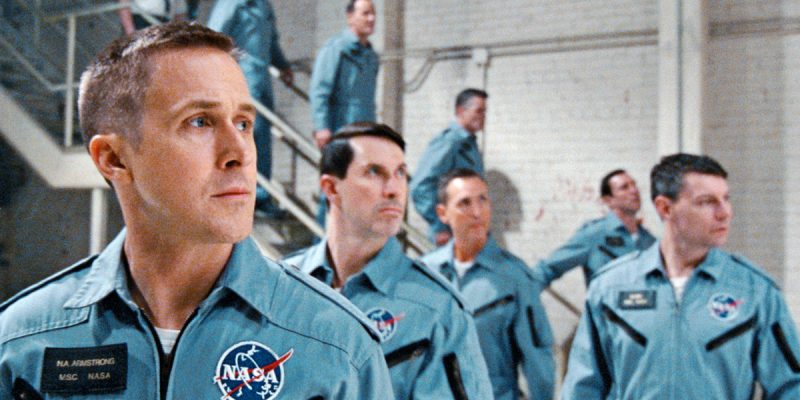The Hollywood spotlight “First Man” was many things. One thing it was not is a celebration of perhaps the greatest American achievement, landing on the moon. Instead, the film’s overwhelming narrative seems to probe the question, literally and symbolically, “is going to the moon worth it?”
No doubt this question was seriously asked from a number of different perspectives throughout the 60’s. Many lives were lost, missions were failures, success was never certain. NASA was starting from scratch. Everything was one giant experiment. It was an unavoidable element of the journey to make mistakes, learn and move on.
Brave men dedicated their entire lives to this uncertain dream. Many of these men did not live to see this dream fulfilled. This was not the first time that Americans laid down their lives for something greater than themselves.
Hundreds of thousands of U.S. soldiers died as a result of WWI and WWII. Yet, who would dare look back on their memories, what they sacrificed, the end result of the cause to which they dedicated their lives, and ask “was it worth it?” It hardly seems plausible that this question would even flicker in the minds of Americans looking back on these colossal victories for the country.
However, the narrative “was it worth it?” not only exists in the case of the Gemini and Apollo projects, but dominated an entire multi-million dollar Hollywood creation. It is not the acknowledgement of doubt, struggle and suffering that is a problem in and of itself. This a real genuine aspect of the human experience. These elements are potent pulls on the heart, and they make triumph that much more rich and powerful. It is this latter element of NASA’s great leap forward that was missing in Hollywood’s “First Man.”
“We chose to go to the moon in this decade and do the other things not because they are easy but because they are hard” said John F Kennedy. Man is sculpted by challenge, and it is the triumph over these challenges that have paved the way of history. Great struggle weighs down on every life, small and large. From nothing to something, man has pressed forward out of darkness into eloquence. The pursuit of greatness has defined our species for millennia. It is the triumph of the will over the complexity of nature, the laws of physics, and the inner struggles of man that put Neil Armstrong on the moon.
Advertisement
JFK rightfully acknowledged that going to the moon was “the most hazardous, and dangerous, and greatest adventure on which man has ever embarked.” Note his mindset, depicted by how he orchestrated this statement. “Hazardous” and “dangerous” came first as descriptors of the challenge that lies ahead. It is these elements that must be embraced and overcome for the sake of the “greatest adventure on which man has ever embarked.” Greatness is defined by how paramount the task is over which one seeks to prevail.
Landing on the moon was heroic, inspiring, and will forever act as a mark of the greatness that was America during these turbulent times. The potential impact of one country and one grand national will cannot be doubted for those who look back on Apollo 11, a triumph against all odds.
Advertisement
Advertisement

